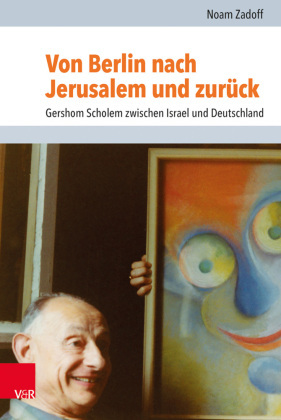Von Berlin nach Jerusalem und zurück - Gershom Scholem zwischen Israel und Deutschland. Dissertationsschrift
| Verlag | Vandenhoeck & Ruprecht |
| Auflage | 2020 |
| Seiten | 416 |
| Format | 16,9 x 24,0 x 3,3 cm |
| Gewicht | 814 g |
| Reihe | Jüdische Religion, Geschichte und Kultur Band 023 |
| Übersetzer | Dafna Mach |
| ISBN-10 | 352557035X |
| ISBN-13 | 9783525570357 |
| Bestell-Nr | 52557035A |
Obwohl Gershom Scholem seine Auswanderung nach Palästina als Bewegung ohne Wiederkehr dargestellt hat, blieb er Zeit seines Lebens in engem Kontakt zu Deutschland. Bereits in den 1920er und 1930er Jahren arbeitete er mit jüdischen Kulturinstitutionen und Verlagen in Berlin zusammen, doch auch nach dem Holocaust reiste er häufig nach Deutschland und übernahm eine besondere Funktion in den intellektuellen Kreisen des Landes: als moralische Autorität für die jüngere Generation, sowie als Brücke zur deutschen Kultur der Zwischenkriegszeit und des Kaiserreichs. Für Scholem selbst war diese "Rückkehr" auch ein Ergebnis seiner Ernüchterung von der zionistischen Utopie seiner Jugend.
Über das Leben des Gershom Scholem: die Geschichte eines (Re-)Migranten.
Although Gershom Scholem presented his life in his autobiography as a one way movement from Berlin to Jerusalem, a closer look in mainly unpublished documents reveals a different picture. Since the moment of his arrival in Palestine in 1923 and until his death in 1982 he remained in close contact to the German speaking cultural and intellectual worlds. In the 1920ies and 1930ies he contributed to the Hebrew and Jewish cultural circles in Berlin, and even after the shock of the Holocaust he gradually returned to shorter and longer visits in Germany. In the postwar Federal Republic Scholem played a central role as a moral authority, who offered an alternative for young intellectuals to their corrupted father's generation. By doing so, the German-Israeli intellectual served as a generational link, bridging over the abyss created by the Holocaust. For Scholem himself this "return" was the outcome of a long process of disillusionment with his Zionist utopia.
Leseprobe:
Although Gershom Scholem presented his life in his autobiography as a one way movement from Berlin to Jerusalem, a closer look in mainly unpublished documents reveals a different picture. Since the moment of his arrival in Palestine in 1923 and until his death in 1982 he remained in close contact to the German speaking cultural and intellectual worlds. In the 1920ies and 1930ies he contributed to the Hebrew and Jewish cultural circles in Berlin, and even after the shock of the Holocaust he gradually returned to shorter and longer visits in Germany. In the postwar Federal Republic Scholem played a central role as a moral authority, who offered an alternative for young intellectuals to their corrupted father's generation. By doing so, the German-Israeli intellectual served as a generational link, bridging over the abyss created by the Holocaust. For Scholem himself this "return" was the outcome of a long process of disillusionment with his Zionist utopia.
'Although Gershom Scholem presented his life in his autobiography as a one way movement from Berlin to Jerusalem, a closer look in mainly unpublished documents reveals a different picture. Since the moment of his arrival in Palestine in 1923 and until his death in 1982 he remained in close contact to the German speaking cultural and intellectual worlds. In the 1920ies and 1930ies he contributed to the Hebrew and Jewish cultural circles in Berlin, and even after the shock of the Holocaust he gradually returned to shorter and longer visits in Germany. In the postwar Federal Republic Scholem played a central role as a moral authority, who offered an alternative for young intellectuals to their corrupted father s generation. By doing so, the German-Israeli intellectual served as a generational link, bridging over the abyss created by the Holocaust. For Scholem himself this return was the outcome of a long process of disillusionment with his Zionist utopia.

